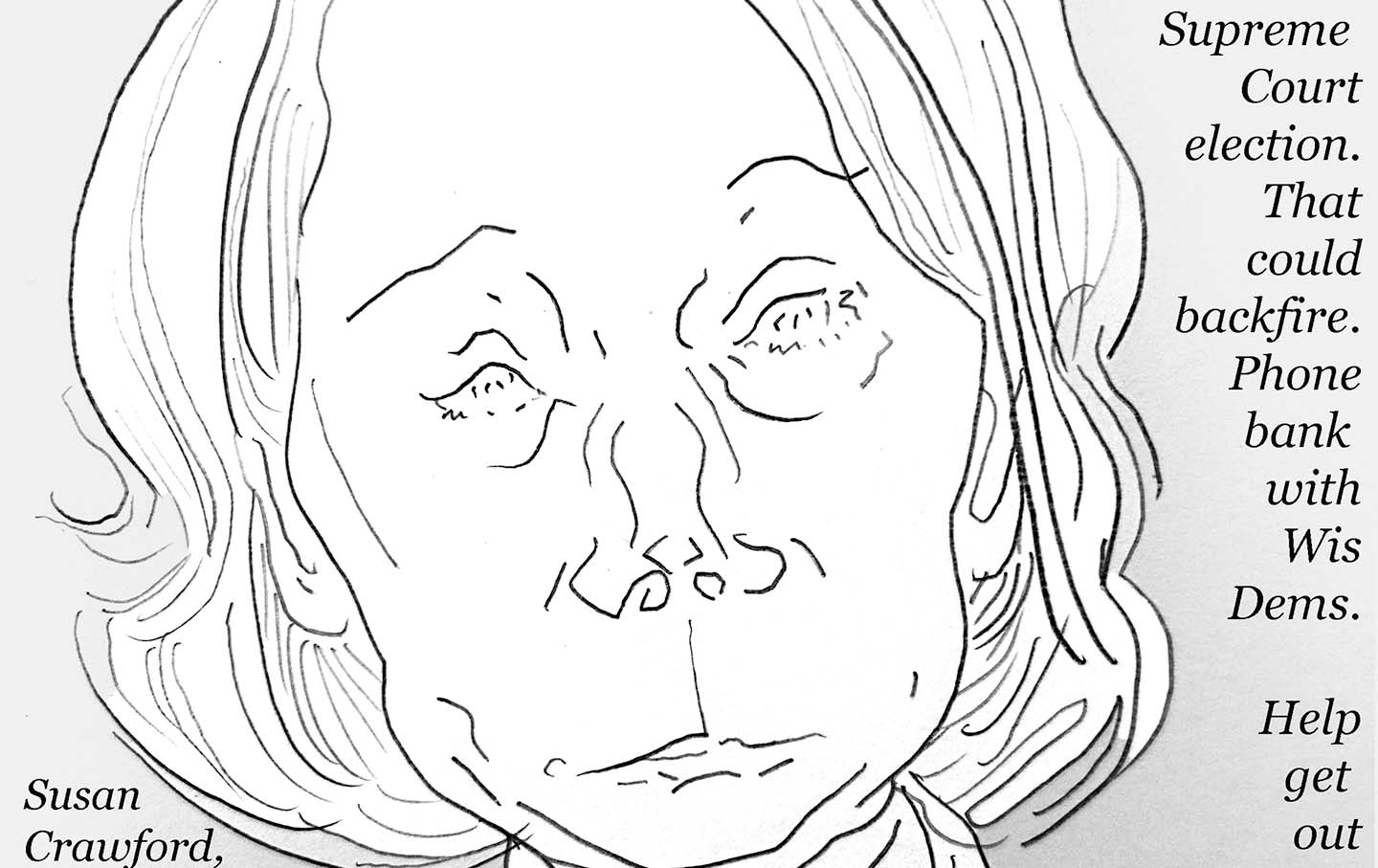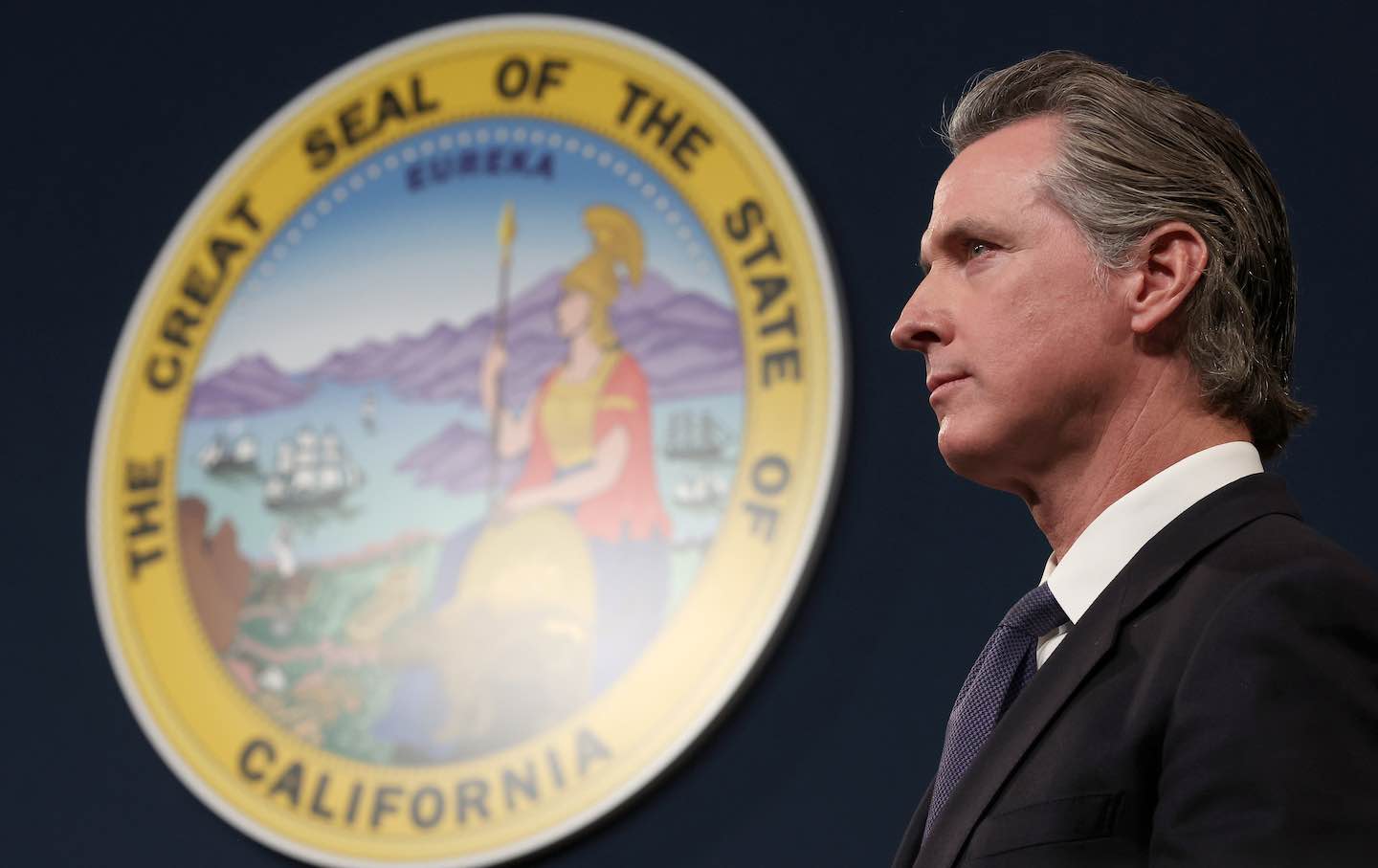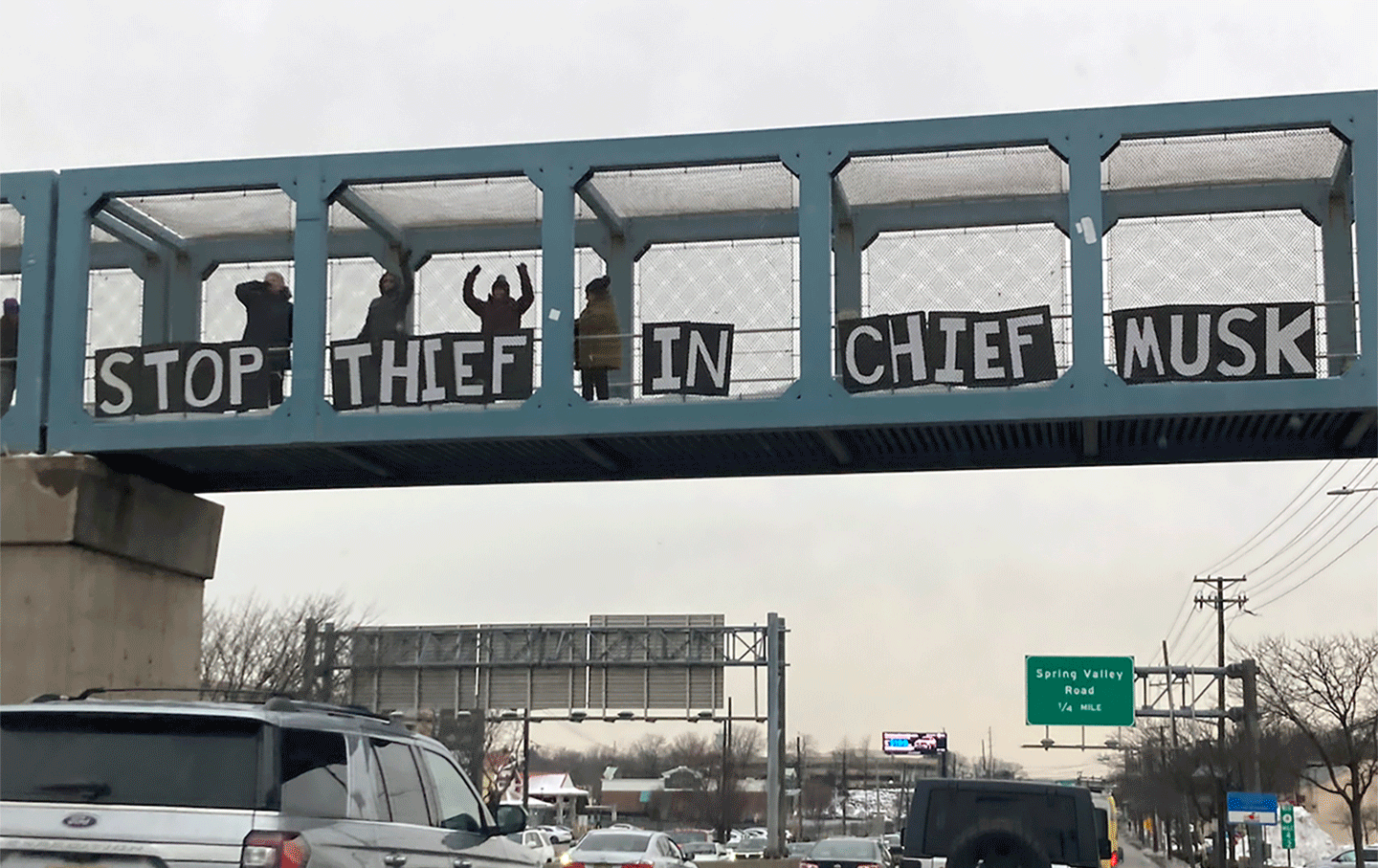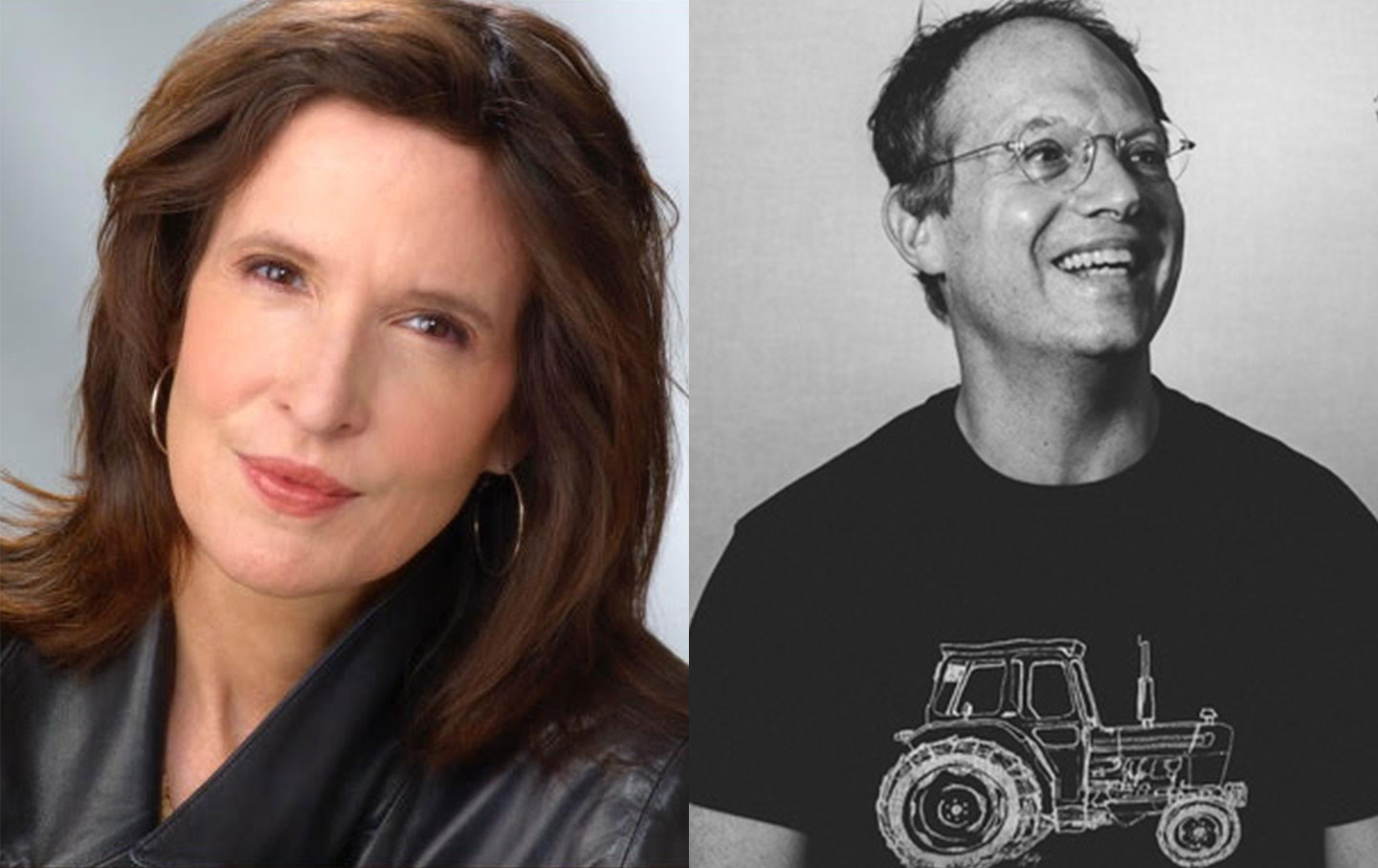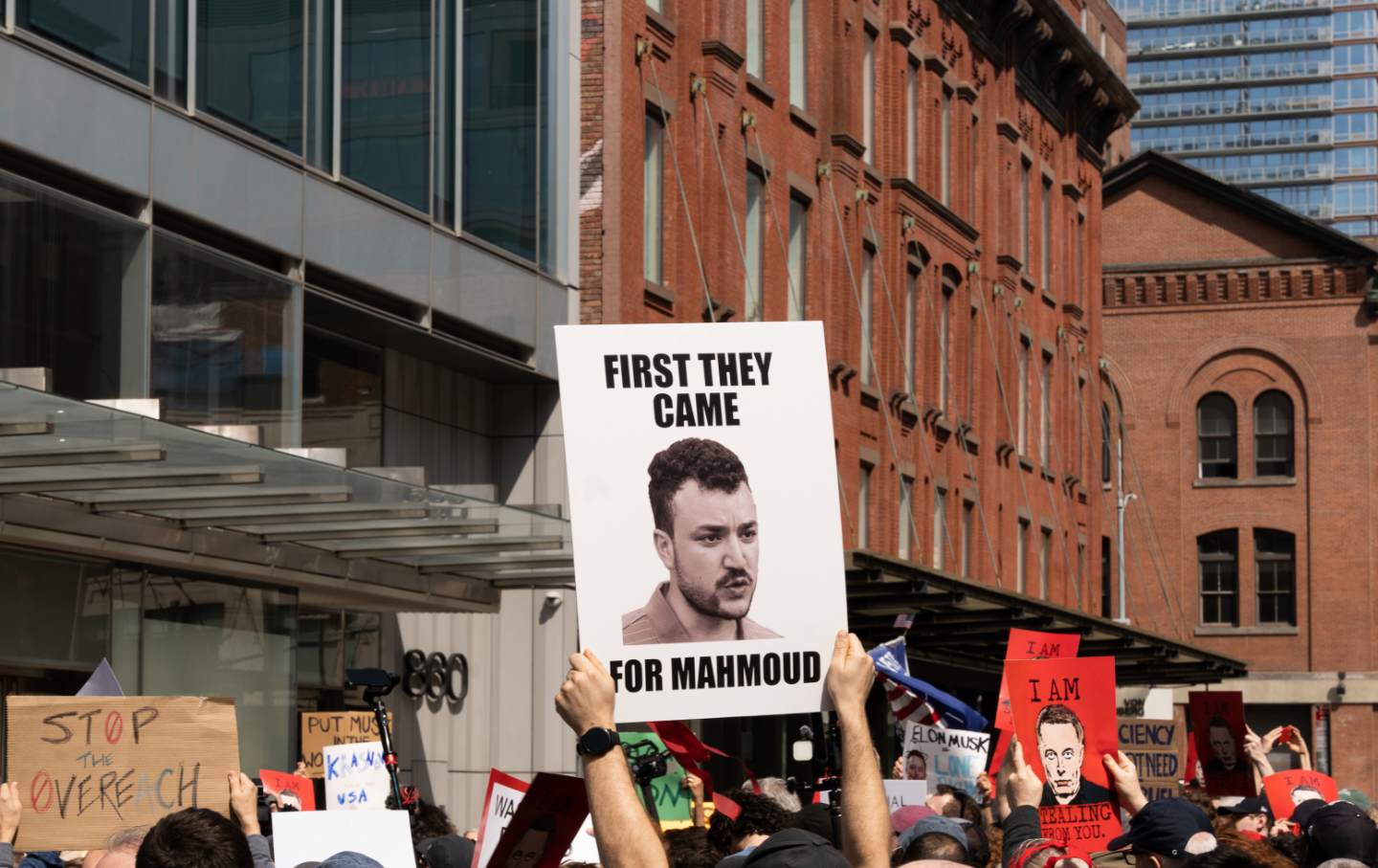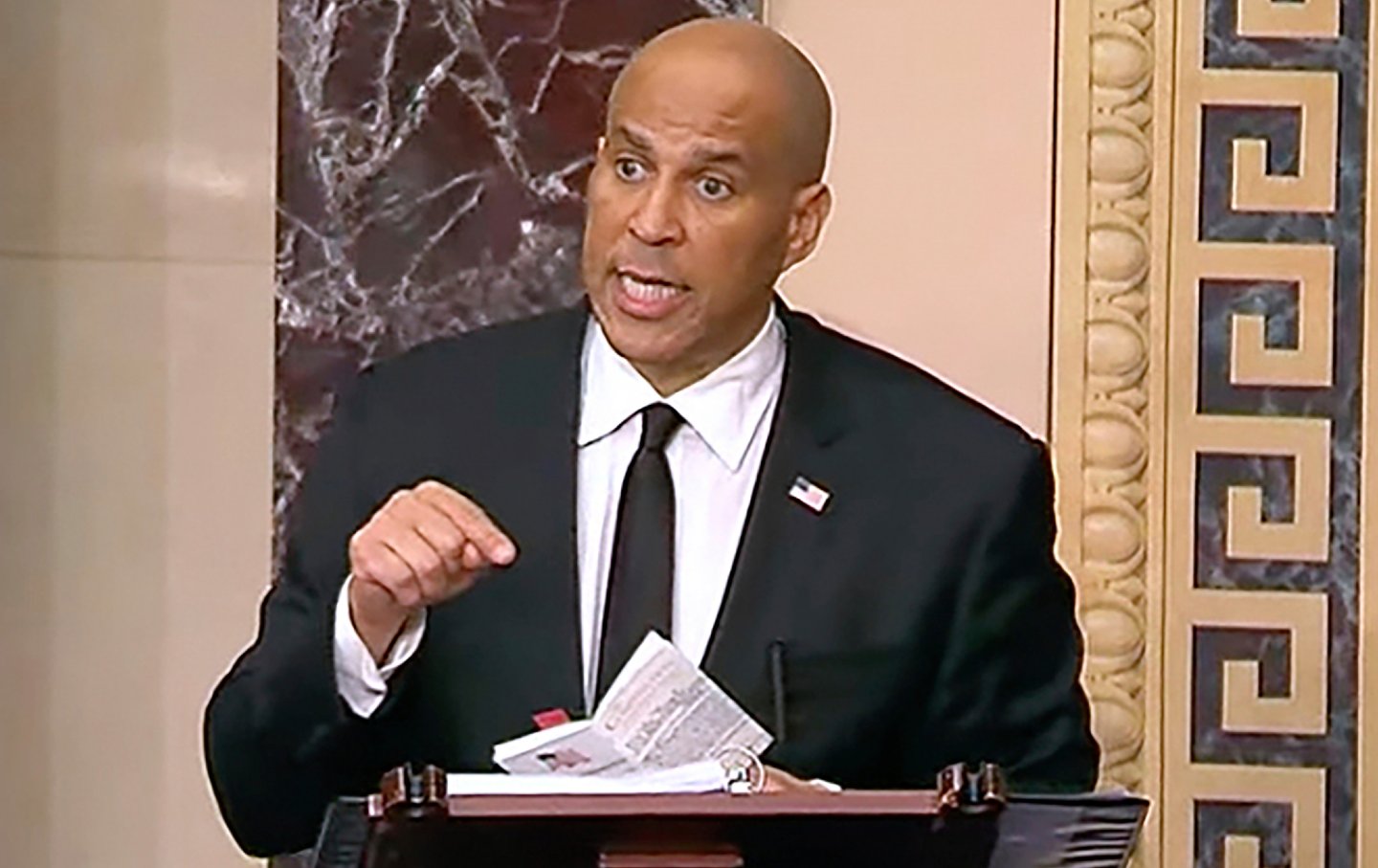Democrats Held the Most Pro-Union Convention in History. Now, They Must Take That Message on the Road.
Kamala Harris and Tim Walz should learn from what worked at the DNC and make organized labor a central focus of their fall campaigning.
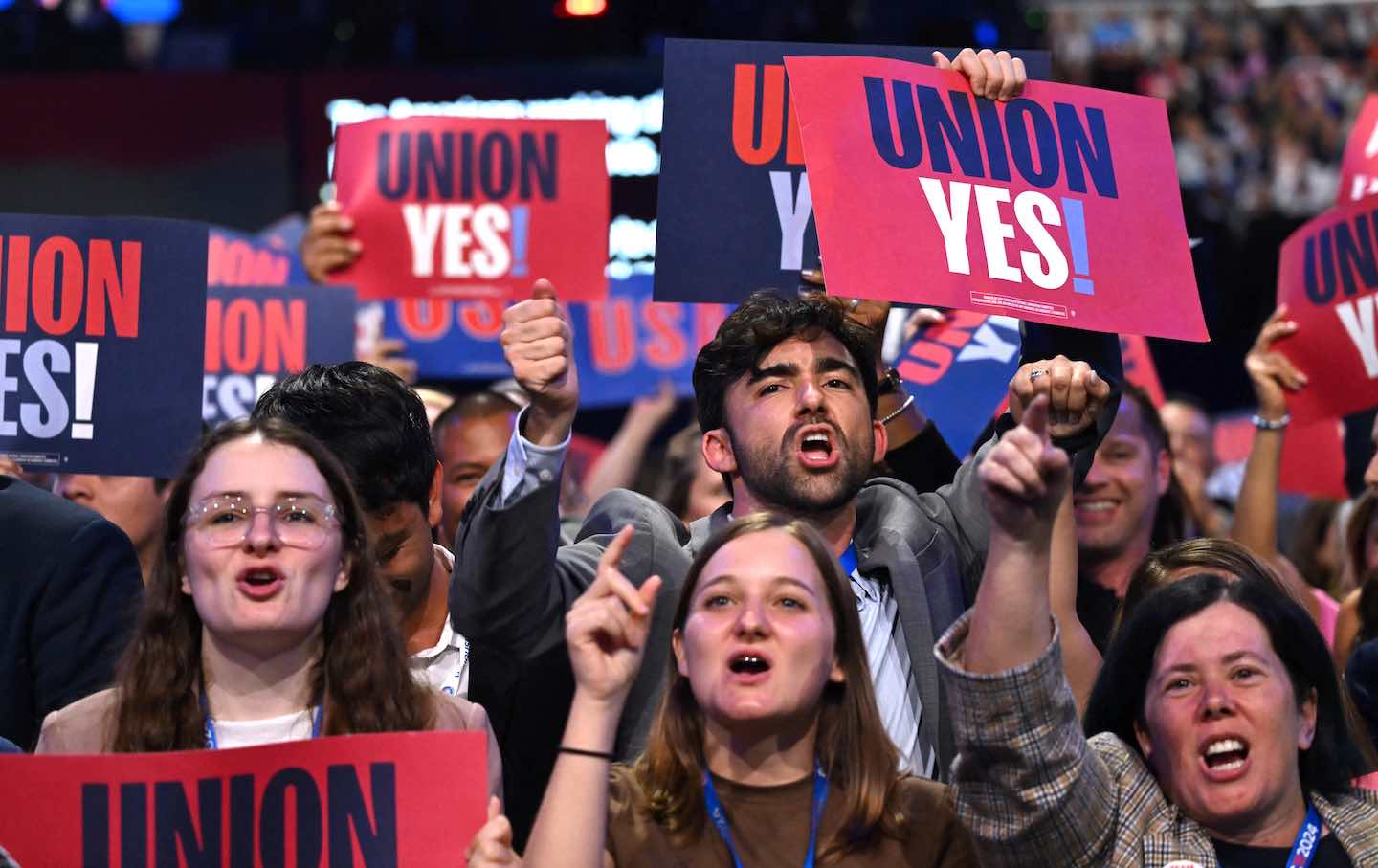
Attendees chant “Donald Trump is a scab” on the first day of the Democratic National Convention at the United Center in Chicago on August 19, 2024.
(Photo by Andrew Caballero-Reynolds / AFP)
Longtime labor advocate Kamala Harris and longtime National Education Association member Tim Walz accepted their nominations last week at the most pro-union Democratic National Convention in the party’s history. The challenge now is to translate the energy of the convention into a campaign that boosts turnout among the multiracial, multiethnic mass of working-class Americans—especially young people—who will decide whether the party’s ticket wins, and perhaps wins big, in November. To do this, Harris and Walz must take a lesson from what worked at the convention in Chicago and make a discussion of unions central to their fall campaigning.
Every speech that Harris and Walz deliver this fall should include a section that explains what the election of a Democratic president and a Congress with solid Democratic majorities would do to strengthen unions. That’s practical politics in an era where Americans are showing unprecedented levels of enthusiasm for organized labor.
Seventy percent of Americans approve of unions, according to Gallup polling released in anticipation of Labor Day. That’s up from 67 percent last year, when Gallup found that 88 percent of likely Democratic voters have a favorable view of unions, while a striking 61 percent of them want unions to have more influence on the economy and society. That same Gallup Poll found that 47 percent of Republicans approve of unions, while 21 percent want them to have more influence.
Even more notable than the partisan numbers are the astronomical levels of support for unions among young people, who can give Democrats winning margins in presidential battleground states and congressional contests if they turn out at high rates. Polling last year by the AFL-CIO found that 90 percent of Americans under the age of 30—no matter their party affiliation—support strikes by union members, while roughly the same percentage approve of unions.
If the Democratic Party unequivocally brands itself as the party of organized labor in this campaign, it will benefit the party on Election Day. This isn’t just a matter of reaching out to existing union members. It’s a matter of speaking to the many millions of Americans who want to join unions but who have been blocked from doing so by the barriers that Republicans have erected to organizing and collective bargaining. In Republican-controlled states, those barriers include anti-labor “right-to-work” laws, which make it dramatically harder to organize and maintain union locals; and at the national level, GOP senators have opposed labor law reforms such as the Protecting the Right to Organize (PRO) Act, which would open up new avenues for organizing and protect workers who want to unionize from being intimidated by corporations.
In a race against alleged billionaire Donald Trump, who as president packed the National Labor Relations Board with anti-union members, and against the Republican members of Congress whose lockstep opposition prevented President Biden and Senate Democrats from enacting the union-backed PRO Act, there’s a clear distinction between the two major parties. Democrats should seize on every opportunity to highlight that distinction.
That’s what many of the savviest speakers at the Democratic National Convention did, to powerful effect. Indeed, every time that the “u” word was mentioned in Chicago, pandemonium ensued.
On the first night of the convention, when Joe Biden declared, “I’m proud to be the first president to walk a picket line,” the crowd roared its approval so loudly that even Biden seemed a bit taken aback. But the president wasn’t stopping there. “I’ve been labeled the most pro-union president in history,” he noted, as the applause built to a crescendo. Then, to no one’s surprise but to everyone’s delight, he embraced the label, announcing, “I accept it; it’s a fact. When unions do well, we all do well.” The 20,000 delegates alternates and party partisans who had packed the United Center, in the great working-class town of Chicago, answered their president with a thunderous round of applause.
It wasn’t just an applause line for Biden, whose valedictory address after turning the party’s nomination over to Harris was always going to be an emotional highpoint of the convention.
Every speaker who mentioned organized labor was greeted with sustained, often overwhelming, enthusiasm. It happened when United Auto Workers Union president Shawn Fain preached the union gospel and then, with a nod to a 2002 rap hit, pulled off his jacket. “In the words of the great American poet Nelly, ‘It’s getting hot in here,’” Fain observed, to the crowd’s applause, as he revealed that he was wearing a “Trump is a scab” T-shirt. It happened when American Federation of State, County and Municipal Employees Union President Lee Saunders explained that Harris was “guided by a basic principle: more freedom for working people, including then freedom to join a union.” And when Saunders gave voice to organized labor’s “Union Yes!” battle cry, the entire hall echoed his message.
Unions even earned a cheer during the roll call of states, when Ohio Democratic Party chair Liz Walters asserted, ”Ohio knows how to make history. We put a man on the moon, and we are the founding home of the AFL-CIO.” And when actress Kerri Washington announced on the final night of the convention, “I am here as a mother, as a daughter, as a proud union member,” she was interrupted by shouts of approval from throughout the arena.
History buffs may recall that it was a Republican who made some of the first efforts to reach out to organized workers. As a presidential candidate in 1860, Abraham Lincoln told New England mill workers and shoemakers, “I am glad to know that there is a system of labor where the laborer can strike if he wants.” But it’s the Democrats who have had a strong claim on labor support since Franklin Roosevelt won the presidency in 1932 and began to use the office to implement pro-labor policies that transformed work life in America. The party’s support has been far from steady, however. In the days of FDR and Harry Truman, its conventions were divided between union activists from Northern and Western states on one side and, on the other, the Southern segregationist Democrats who passed “right-to-work” laws in order to block the progress of multiracial, multiethnic union organizing by the militant Congress of Industrial Organizations. As recently as the 1990s, President Bill Clinton broke with the labor movement to implement Wall Street’s free-trade agenda.
Under Biden, the party has become more explicitly pro-union—in its policies and its language. And this year’s convention celebrated the alliance.
Now, the party has a chance to take the message on the road. The Democratic candidates have pro-union records they can talk about. They have endorsements from the AFL-CIO and most of the country’s largest unions, and they are actively pursuing support from those that have yet to pick a favorite—including the International Brotherhood of Teamsters and the International Association of Firefighters. (Walz, a close ally of public-sector unions during his 12 years in Congress and during his tenure as governor of Minnesota, addressed the convention of the 350,000-member firefighters union on Wednesday in Boston.)
They also have a party platform that features commitments they can amplify:
Democrats will keep fighting to pass the Protecting the Right to Organize (PRO) Act, to give everyone the right to organize for better pay, benefits, and working conditions, and to hold abusive bosses accountable for violating workers’ rights. We oppose state right-to-work laws, which drive down wages and leave workers unsafe; and we support penalizing employers who engage in union busting. We’ll work to pass the Public Service Freedom to Negotiate Act, guaranteeing public sector bargaining rights; and to codify a right to organize for domestic workers, farm workers, and other unprotected laborers. Democrats will continue to create strong labor standards for jobs created with taxpayer dollars through legislation and with strong Buy American rules. Consistent with the law, we will ensure that federal grants and other assistance to employers are contingent on recipients committing to not interfering with workers’ efforts to form a union. By leveraging the benefits of federal grants for infrastructure, manufacturing and services, we will seek to ensure that all Americans have the opportunity to participate in the American Dream.
Harris and Walz have an opportunity to make a pro-union agenda central to their fall campaign. And doing so makes practical political sense.
Workers are organizing and bargaining nationwide, as Fain explained in a convention speech that highlighted UAW members at Cornell in Ithaca, New York. When unions strike, they get overwhelming support from Democrats, independents, and a significant number of Republicans. And, as the Economic Policy Institute notes, “a majority of workers in the United States across all sectors—59 percent—support unionization in their own workplace.” That means that there are literally millions of workers who are up for joining a union. What they need is a government that is explicitly, and aggressively, on the side of working-class Americans.
Democrats have a chance this fall to make it clear that, while barriers to organizing and collective bargaining would be maintained and perhaps even expanded by a second Trump term, a President Harris and a Democratic Congress will usher in a new era of union power.

